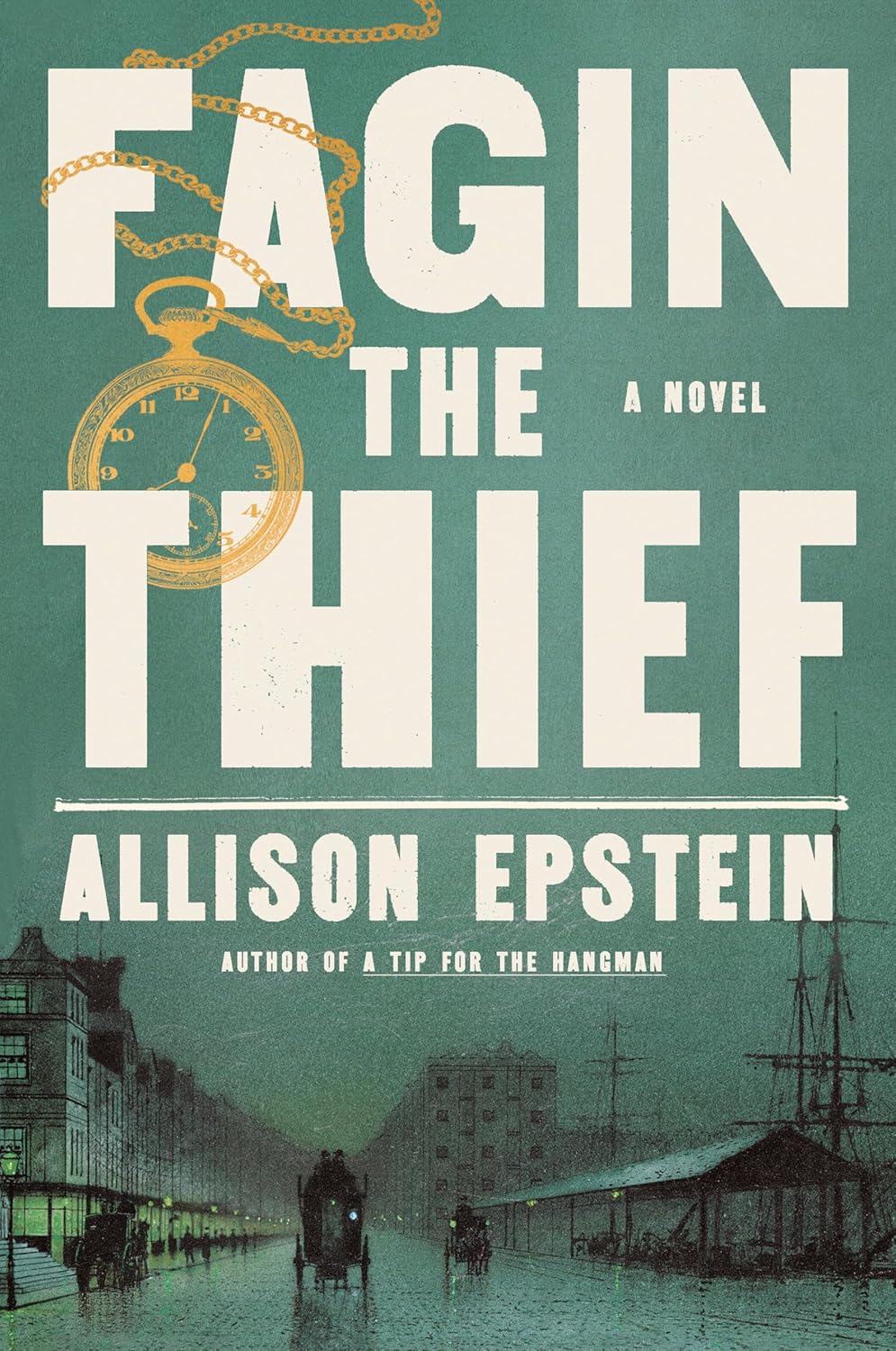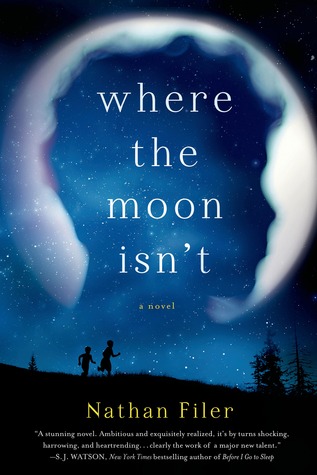Fagin the Thief: A Novel
- By Allison Epstein
- Doubleday
- 336 pp.
- Reviewed by John P. Loonam
- February 21, 2025
A Dickens villain gets an identity beyond “the Jew.”

One of the difficulties I’ve encountered when teaching classic literature is the occasional brush with bigotry. Can we ignore the racism in that passage from The Great Gatsby? What about the portrayal of women by Hemingway? The problem is exacerbated when the writer is talented enough to bring stereotypes to life in interesting ways, making it impossible to dismiss them.
In Charles Dickens’ Oliver Twist, Fagin, chief of the pickpockets, is colorful and funny, unique and compelling. Even as he exploits those kids, we cannot turn away. Yet he is also a vile antisemitic stereotype — ugly, dishonest, greedy, and manipulative. He grooms Christian boys to support him through stealing, abases himself to Bill Sikes, and fails to protect Nancy Reed from Bill’s rage.
The bigotry is heightened because Fagin is given no backstory. We do not learn where he comes from or what led him to a life of crime. Because he is without family or past, his actions seem to spring from some essential aspect of his nature, and since he is almost always referred to as “the Jew,” it’s impossible to ignore what that essential aspect is.
In her new novel, Fagin the Thief, Allison Epstein allows us to rethink this character by giving us a fuller, more fully human version of the man. We see his childhood, the history of his school for pickpockets, and his relationships with Bill and Nancy. Oliver himself makes a cursory appearance, involved as he is with Fagin’s fate, but this is Fagin’s story, not a sequel to Dickens’ tale.
Fagin is first humanized by being given a name — Jacob — and he is referred to most often by that name, never by his religion. His mother, Leah, is a hardworking seamstress trying to provide for her son in a small Jewish enclave in 1790s London. Leah dotes on Jacob and encourages him to read and to study with the local rabbi. Jacob’s father is absent, having been hanged as a thief, a legacy that taints Jacob. When a nosy and pious neighbor warns Leah that “the path to the gallows is in this one’s blood,” it reads as prejudice. But it turns out she’s right.
Jacob is drawn to the streets, and when he encounters Anthony Leftwich, a supremely talented pickpocket, he’s enthralled by the grace and excitement of the man’s thievery. Seeing a new kind of freedom, he becomes Leftwich’s apprentice and quickly masters his craft. When Leah dies, a heartbroken Jacob strikes out on his own, supporting himself with the silk kerchiefs and gold watches of others. He sleeps in doorways, then in an overcrowded room, and then stumbles onto the abandoned warren of rooms familiar to readers of Oliver Twist as his headquarters.
When Bill Sikes, “a boy with nowhere in the world to go,” arrives, Jacob takes him in. Bill already steals, but Jacob teaches him how not to get caught. After all, the boy “needs to eat somehow.” Once Bill becomes the most successful housebreaker in London, other children show up to be trained. Some of these will also be familiar to readers of Dickens, but Epstein is writing in the 21st century, so her students include a girl and a Black boy. The latter becomes Fagin’s most loyal disciple.
Epstein leaves unexplored the issue of nature vs. nurture and avoids any consideration of how poverty or prejudice might push boys like Jacob or Bill into a life of crime. Rather than being forced into such a life by circumstances, Jacob chooses it because he has a talent for it. And while Epstein makes clear that the children Jacob trains have nowhere else to go, Jacob does not exploit them for money but instead teaches them because he is a natural teacher. Epstein’s Fagin is just as essentially himself as Dickens’ Fagin.
Even his choice to live alone comes not because he is an outsider or unattractive. Fagin is alone because “he is the kind of creature that belongs alone.” A contemporary novel presents the opportunity to examine sexuality in London society openly, but for the most part, Epstein keeps things closed. While people live in close quarters, some women are sex workers, and Fagin’s relationship with young boys remains ripe for exploitation, until Nancy and Bill fall in love, sex is entirely absent from this world.
Epstein’s courage is to be admired: She forces the reader to constantly compare her writing to that of Dickens, and very few novelists can come out ahead in that match-up. The complex linguistic world of accents and dialects that Dickens built is largely absent here; even when we are told characters are speaking in exaggerated Cockney, they aren’t.
Nonetheless, we feel the constant pressure of prejudice that Fagin faces and are relieved that none of it comes from our narrator. We are free to root for Jacob as he longs for a world where he can be “Fagin the Thief before he is Fagin the Jew.” Of course, history is still history, so it’s unlikely he’ll find such a world, but Epstein keeps us hopeful to the very end.
John P. Loonam has a Ph.D. in American literature from the City University of New York and taught English in New York City public schools for over 35 years. He has published fiction in various journals and anthologies, and his short plays have been featured by the Mottola Theater Project several times. He is married and the father of two sons; the four have lived in Brooklyn since before it was cool. His first novel, Music the World Makes, will be published by Frayed Edge Press in 2025, while a collection of his short stories, The Price of Their Toys, is forthcoming from Cornerstone Press.

